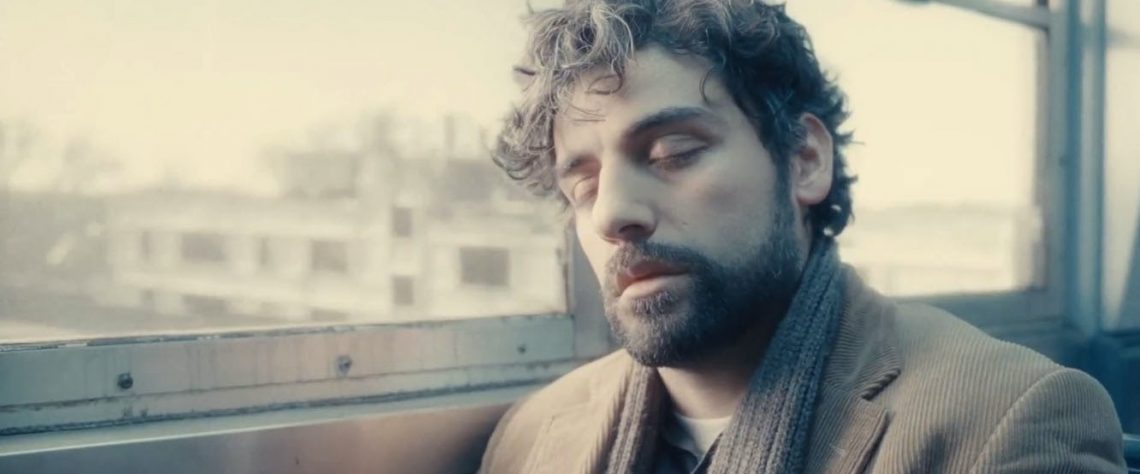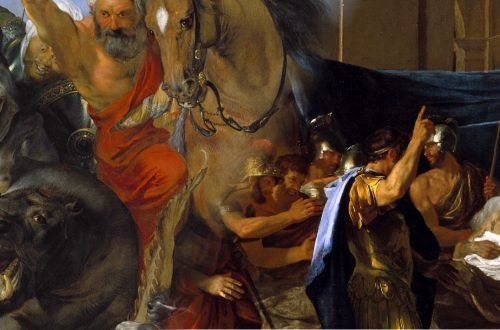by Damian Arlyn
SPOILER WARNING: The endings of various movies are described in detail in this article.
I recently revisited the Coen brothers’ Inside Llewyn Davis, a chronicle of one musician navigating Greenwich Village’s 1961 folk scene in a feeble attempt to get discovered. A thought occurred to me about halfway through it that, as a longtime fan of the sibling Minnesotan auteurs, I can’t believe it took me this long to figure out.
The Coens love losers.
Llewyn Davis is just one in a long line of “Coen losers” – a collection of fools, stooges and innocents who always seem to fancy themselves smarter or more capable than they actually are and who fumble through life constantly screwing things up and getting the short end of the stick. Of course, one could argue that lots of movies focus on characters who aren’t the brightest, bravest or most competent of human specimens, but what sets them apart from Coen losers is the fact that most of them, in spite of their handicaps, somehow manage to overcome whatever obstacles stand in their way to eventually reach their goal. In other words, most movies are about losers transforming into winners.
Coen losers tend to stay losers.
Take Barton Fink, an acclaimed New York playwright that aspires to create truly great and timeless art that honors the common man. He winds up stuck in the purgatory of a Hollywood studio where he is assured by his boss that none of his creative endeavors will ever see the light of day. Sheriff Tom Bell spends the entirety of No Country For Old Men pursuing some stolen money and a sociopathic murderer, but alas both elude him and he ends his story in an unhappy retirement contemplating his own mortality. Larry Gopnik of A Serious Man searches for some grand meaning to the sufferings in his life only to be met with silence from God and a phone call from his doctor (apparently with bad news) just as an approaching tornado prepares to take the life of his youngest son.
Ed Krane, the laconic barber of The Man Who Wasn’t There, never realizes his meager dream of becoming a dry cleaning salesman and instead winds up being executed not for the one crime of which he was guilty (killing his wife’s lover, even though it was in self-defense) but for a crime of which he wasn’t. The gang of bank robbers in The Ladykillers, rather than successfully getting rid of the one witness who knows of their heist, all end up dying (every single one of them) as a result of either stupidity, betrayal or just plain bad luck. Bartender Ray (no last name) from Blood Simple has an affair with his boss’ wife, makes a wrong assumption about her complicity in his murder and winds up getting shot and killed right in front of her by a crooked private investigator.
The list just goes on and on.
Naturally, as with all filmmakers’ recurring themes/motifs, not every entry in the Coens’ oeuvre adheres to this principle. Sometimes even a Coen loser can succeed (usually, I’ve noticed, when the Coens are engaging in a genre effort). Drunken, divorced and morally questionable federal marshal Rooster Cogburn helps Matty Ross avenge her father’s murder and even saves her life in the denouement of True Grit. Norville Barnes, the hayseed simpleton of The Hudsucker Proxy, not only turns the tables on the corporate villains trying to exploit him by inventing the most popular toy of all time but he even gets the girl in the end. A similar fate befalls Ulysses Everett McGill, the none-too-bright protagonist of O Brother, Where Art Thou? who escapes from a chain gang with two other convicts and after a series of pitfalls and close-calls (including almost getting hanged by an overzealous sheriff) is eventually reunited with his wife and seven daughters.
These “Coen winners,” however, seem to be the exception rather than the rule and their achievements are a byproduct of chance just as much (if not more so) as their own ingenuity or intelligence. Rooster Cogburn, for example, becomes so disillusioned with his performance on his latest job that he actually gives up on his mission to lead Matty Ross to the hiding place of her father’s murderer (she only finds him when she practically stumbles onto him at a nearby river the following morning). Likewise, Norville Barnes wouldn’t have gotten the girl if a time-stopping janitor hadn’t saved him from becoming a greasy spot on the pavement after his fall of forty-four floors (forty-five if you count the mezzanine) from the Hudsucker building. Even Everett McGill would never have resumed his role as pater familias had his hanging not been interrupted by a fortuitous (or perhaps providential?) wave of rushing water.
For the most part, however, the Coen brothers don’t seem particularly interested in the stories of those who come in first place. They appear to be more preoccupied by those who come in last. They don’t even seem to be as inspired by a good old-fashioned “underdog” parable as most people are. (If the Coens told the story of David and Goliath, the little shepherd boy would definitely not have been the victor.) How many other filmmakers can you think of that consistently make their movies about losers rather than winners?
So, what is it about losers that attract the Coens so (or conversely, what is it about the Coens that makes them so interested in the plight of losers)? Do these two offbeat filmmakers identify with losers or are they just being smug? The Coens have often been accused of misanthropy in their work, of being mean and sadistic to their characters, but are they? Are they parading out the freaks, flunkees, and schmucks merely for our amusement, to allow us to feel superior to them and their pathetic attempts to get ahead in a universe that is cruel at worst and indifferent at best? Or rather do they have affection for these poor souls and are drawing attention to their misery and disappointments in an attempt to elicit our compassion as well? Are we being invited to laugh with them or at them?
Personally, I think it’s a bit of both.
There can be little doubt that much of the humor in the Coens’ work derives from watching their characters suffer and/or fail miserably, but this is not unique to them. Nearly all humorous situations involve somebody being humiliated in some way, and in the Coens’ mind, it would seem that the worse their misfortune, the funnier it is. As Mel Brooks said, “Tragedy is when I cut my finger. Comedy is when you fall into an open sewer and die.”
However, it does seem apparent to me that the Coens have some kind of a soft spot in their hearts for losers. They do not delight in torturing their characters (well, maybe just a little bit). They are, in fact, rather moved by their struggles and somewhat saddened by their downfalls (even the ones like Fargo‘s Jerry Lundergard, who bring it upon themselves). The Coens are not exactly storytellers known for their emotional earnestness, but occasionally a glimpse of humanity peeks through amidst all the cynicism and despair. Tom Bell, Ed Crane, Llewyn Davis and the rest are semi-comic/semi-tragic figures and in highlighting their defeats, I think the Coens are indeed attempting to arouse our own sympathy, inviting us (sometimes perhaps even daring us) to love these losers as much as they do.
If there is one individual from the Coens’ canon who embodies this complex relationship these creators have with their creations, it’s the Dude from The Big Lebowski. He is arguably the Coen brothers’ “ultimate loser,” the one who actually elevates it to an art form. The Dude is a middle-aged, pot-smoking hippie who gets drawn into a convoluted Phillip Marlowe-like kidnapping-and-ransom plot simply because he happens to share the same last name (Lebowski) as a prominent but corrupt politician. The Dude is lazy and unkempt, has no job and no ambition (except perhaps to win a bowling tournament) and for all intents and purposes, is civilization’s perfect picture of a “loser.” The other Lebowski at one point even yells at him, “Your revolution is over, Mr. Lebowski! The bums lost… The bums will always lose!” The Dude wanders through the complicated narrative with nary a clue as to what’s going on and blissfully unaware that he’s being exploited by virtually everyone he encounters (he’s like Norville Barnes, but without the imagination). In the end, the Dude actually, and rather improbably, figures out the big Lebowski’s scheme, but is unable to do anything about it. He doesn’t get the large amount of money he was promised, his car (which receives an increasing amount of abuse throughout the film) eventually gets totally destroyed and, sadly, one of the other members of his bowling team drops dead in a parking lot. From a certain perspective, the Dude could be said to lead a pretty sorry existence.
And yet for all his shortcomings, not only is the Dude an immensely engaging and endearing fellow but the nonchalance with which he receives all of his trials and tribulations is sort of inspiring (“The Dude abides,” are his final words in the film). It is impossible not to like the Dude and nigh impossible to not want to adopt his devil-may-care attitude about the crummy circumstances in which we often find ourselves. I would argue that while the Coens are clearly laughing at the dude’s foibles, they also have nothing but love and affection for him (in fact, the Dude is based on an eccentric personal friend of theirs: film producer Jeff Dowd). The Dude is a loser who, through his own zen-like peace of mind, actually transcends his own “loser-ness.” To the Coen brothers, he is the quintessential “loser as hero,” the very kind of character to which they are drawn and whom they want to celebrate.
Whatever the reason for their fascination, Joel and Ethan Coen seem determined to be the movies’ “patron saint(s) of losers.” Like that biblical passage that declares that the “last shall be first, and the first last,” their choosing to shine the light on the conquered rather than the conquerors could almost be considered an act of grace or a sort of “karmic justice,” balancing the cosmic scales in a society that rewards champions and marginalizes everyone else. Indeed, in a cinematic landscape filled with protagonists who defy all odds to win the day, their decision to turn their camera on those who constantly draw the short straw is rather refreshing. After all, in reality very few of us actually ever see our greatest ambitions realized (for every Bob Dylan there are a thousand Llewyn Davises), so the unfortunate outcomes for these Coen loser-heroes ought to resonate with most of us. Furthermore, for those rare winners who actually do get everything they want out of this life, even their achievements are laced with a degree of futility because ultimately they will come to an end just like everything else. As Orson Welles put it, “If you want a happy ending, that depends, of course, on where you stop your story.”
Maybe what the Coens are suggesting is that in the end, we’re all losers.
And that’s cool, man.

Damian Arlyn is a Dallas, Texas resident who divides his time between his job, his lovely wife, producing short animated videos, watching/reading/writing about cinema and listening to music.






5 Comments
Val
Great perspective. Probably why the mood must feel right before sitting down to a COEN BROS. film. Thanks for your input.
BRENT SHORT
That’s like your opinion man. No, seriously love this–I think you’ve captured a lot of what the Coens are about. Thanks for this.
Jon
I think Damian’s analysis here really pulls the opus together.
Abbey
I just saw Llewyn Davis for the first time about a month ago, and I found this read on the Coen brothers incredibly insightful.
Adam Milling
Raising Arizona fits too.